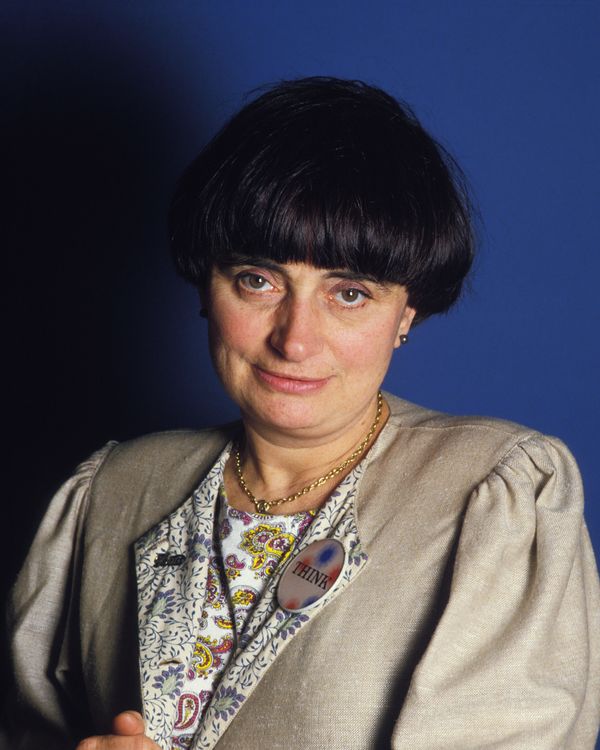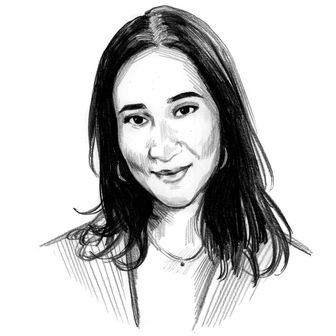
Agnès Varda’s death last year came as a surprise to her daughter. Not because of her age — Varda, a pioneer of the French New Wave, passed away at 90 after a nearly 70-year career — but because of her verve. Rosalie Varda had worked with her mother as a producing and business partner for the last decade, and says that up until her death her “mind was so sharp; she was so fun, so creative, and always doing new things that I could not imagine that she would die. I never thought that someday it would stop.”
Varda’s work spans time, continents, and genres, from her 1954 drama La Pointe Courte to 2017’s Faces Places, a documentary with the artist JR that led to her first Academy Award nomination. Throughout her life, the Belgian-born director was hailed a visionary and art-house icon for her vast oeuvre of films that delved into everything from ’60s counterculture to women’s liberation to the lives of the marginalized.
The entirety of her work recently became available on the Criterion Collection in a boxed set featuring a photo of a young Agnès Varda that Rosalie calls “chic moderne.” The Cut spoke with her about her mother’s legacy, and about how Agnès Varda embodied the joyful, curious approach to life that is so clear in her films.
You’ve made it your work to preserve your mother’s legacy — how is that going, one year after her passing?
My mother died just one month after we presented Varda by Agnès at the Berlin International Film Festival. It’s a normal age to die, and she was lucky to have this art life: so long and so rich and so different. It was more than joyful; it was rich — not like rich and famous, rich with community and intelligence and inspiration.
I could not think that one month after she would die, but it’s life, and the luxury of artists is that when they are not here anymore, we have what they have done. So I am not sad at all.
What did you learn from her?
I learned a lot of things, but I think maybe the most important thing is to take pleasure in what you do. Where you are in the present time, you need to try to take pleasure in where you are and what you do.
She would be happy with the little things of everyday life. She would say: “Every day, we need to have something that makes us feel good.”
One day it can be being in the editing room, and maybe the next day it would be eating a lemon pie, and the third day it would be just having a little walk outside and talking to somebody in the street.
People would come up to her and say, “Oh, Agnès Varda, I love your film.” And she would say, “Phh, what do you do in life? Do you have children? Do you like poetry?” She would always have that interest in people.
What was your relationship with her like, as partners but also as mother and daughter?
We had a very simple and deep relationship, and we trusted each other. She would thank me every day saying, “If you were not next to me, I would not do this. Because you are, I don’t know how to say in English … ‘You are the piece of wood that I lean on because I am old, but you’re holding it to help me walk.’”
I have to talk about my mother a lot these days, and each time I think, I should not say the same thing about my mother. And it’s true that sometimes when I talk about her, it’s not my mother, it’s the artist. Which is more important than being my mother.
But I was thrilled to do this art with her. It was a luxury, a gift. And for her, she could trust me with everything. She could tell me, “Today I’m tired, I don’t have the strength to do things.” And I would say, “It’s okay, let’s go to the Chinese restaurant and let’s talk.”
Sometimes we would argue like people working together. And sometimes when I was very angry at her, I would say to her: “Look, if you’re not happy I will find another little old woman and I will take care of her,” and she would say, “Nooo! Don’t do that. No, my lovely, my lovely.”
And she was tough, but she was tough for her. She put her work in front of everything. She did not put her career in front. She put her work in front of her.
What was the past decade like working with her?
We decided to have fun and to make her a little bit more rock and roll. I said, “Look, we’re going to do fashion magazines; we’re going to go to Gucci and take pajamas to go to the Oscars,” and she would love that.
Tell me about the creation of her very last film, Varda by Agnès.
She used to do what they call a “master class,” even though she didn’t like that term. Each time I was amazed. She would talk about how cinema is not just filming — it’s to invent something. She was always mixing serious things with light things. But she was never pretentious about her knowledge of cinema. She would always say, “You have to find your own way. You have to find your own road. Stop going to schools, just take a camera, do a documentary, do a short film, go out there and do it.”
So I said, “We have to do a master class that we will send all over the world when you will not be able to travel anymore.” And she said, “Oh, you think so? It would be boring for the people. And I said, “Look, it’s not boring for me. And I think we will find a little audience that will be happy to have it.”
And then we did Faces Places, but in 2018 I said, “We have to finish the project.” And she goes, “Oh, it’s not fun. I want to do a new project.” And I said, “Look, we have to do it because one day you will not be here anymore. I can do some things about your legacy, but what you say about your own films is your words. I cannot do it for you.”
And what about the rest of her films; what set them apart from others being made at the time?
The way she mixed politics, love, feminism, and happiness — it’s not politically correct. She always twisted things, very smartly.
She was a very smart feminist. She did not want feminism to be related to sex choice. She thought to be feminist, it was not only woman. For her, feminism is not related to the choice you make as your sexuality. In the last 15 years, 20 years, she did not want her film to be in feminist festivals. Because then we make kind of a wall between those films and the other films. She said: “I don’t want to be chosen because I’m a woman. I want to be chosen because my work is interesting.”
She fought to be strong and decide her life. She would say, “Women can have everything. We can work; we can have love stories; we can cry; we can separate; we can have children; and we can have fun. We can have everything.”
Do you think any of her films best communicate her personality?
When you see a film when you’re 30 or 40 or 50, 60 — I’m 62 — you don’t see them in the same way. You grow up with the films and with the feelings of the film. There are some films that — when I had my first love affair and it broke — I didn’t see certain films in the same way.
And for my mother’s films, they’re a puzzle. My mother is a puzzle. She hides herself. She’s not one person. She’s a piece of a puzzle. And each piece of the puzzle is a full film, a documentary, a short film. As an artist, she’d hide herself behind her work.
Maybe the most personal film is Documenteur. It’s about the very miserable feeling you get that the person you love doesn’t love you anymore. And the loneliness of a big love affair.
Do you have a favorite of her films?
No, it depends on the day. It depends on how many hours I slept.
Right now, in this moment?
At this moment, maybe One Sings, the Other Doesn’t, because I feel we are in a moment where society is very complex.
I wish there would be more positive things. That contraception and abortion were always allowed. That people saw how important education is for politics and feminism and culture. What is happening in the U.S. is frightening, and what’s happening in the world is frightening.
Today I’m really happy that she’s not here seeing this disaster. It’s tough on me; I feel the pressure of the world. I don’t know why, maybe because I’m still a little bit fragile after losing not only my mother, but losing an artist who I was working with, and losing a woman that is a public figure. But it’s okay, I think we have to fight for all of this — for education and art and culture. So it’s okay.





